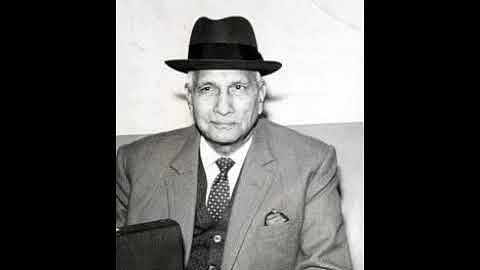New Delhi: The architect of India’s industrial growth Ghanshyam Das Birla laid the foundation of the Birla empire that is spread across many countries.
The Birla group is a commodities empire with interests spanning cement, aluminum, telecom and financial services.
Born on 10 April 1894 in Pilani, Rajasthan, Birla entered the field of business during the time of World Word I. On his death anniversary on 11 June, ThePrint recounts the life of Birla, his closeness with Mahatma Gandhi, his achievements and more.
Jute mill
Birla started his business almost a century ago when he opened a jute mill in Calcutta (now Kolkata), West Bengal, in 1918. Initially, he had established the cotton mill with the name ‘Keshoram Cotton Mills’ in Bombay (now Mumbai), but later shifted it to Calcutta.
In the 1930s, he had set up sugar and paper mills too, and in the 1940s, he made his way into the automobiles market by establishing Hindustan Motors. The real boom for the Birla empire, however, came after Independence when Birla invested in European tea, textiles and other industries.
Although Birla was successful in acquiring everything he aimed for, there was one thing he couldn’t attain — Durgapur Steel Plant. The initial negotiations for the steel plant were on a very positive note in 1962, but later India’s first prime minister Jawaharlal Nehru stepped into the matter and the Birlas were alienated from the deal of the steel plant.
Birla & politics
Birla is often referred to as a ‘nationalist businessman’, who took part in the country’s freedom struggle. He also supported the freedom movement monetarily.
Birla was a close confidante of Mahatma Gandhi and often used his insight over matters related to business and personal life. He even published letters that he and Gandhi wrote to each other in four volumes titled ‘Bapu: A Unique Association’.
He also worked as a relay between Gandhi and the British government. At times, it was also perceived that Birla had his feet in both camps. An example of this was seen in 1926, when Birla was elected to British India’s Central Legislative Assembly.
Other achievements
During the Quit India Movement in 1942, Birla came up with the idea of starting a commercial bank. As a result, the United Commercial Bank, now known as UCO bank, came into being. This is also one of the oldest commercial banks in the country.
In 1927, Birla along with Purshottamdas Thakurdas established The Federation of Indian Chambers of Commerce and Industry (FICCI), which is the largest and oldest business organisation in India.
Birla had even founded several institutions that helped shape the educational trajectory of the country. One of these institutions was the prestigious Birla Institute of Technology and Sciences (BITS), Pilani, founded in 1964. This is now one of the country’s most renowned engineering institutions. The list of its alumni ranges from CEOs of various MNCs to Members of Parliament.
He had also played an instrumental role in founding many temples, planetariums and hospitals across India. He was awarded the Padma Vibhushan in 1957.
When asked by India Today’s editor-in-chief Aroon Purie in an interview if his success was “accidental”, Birla had said: “The word accident is not a correct word. I think according to our own philosophy, we say it’s all because of God. Some people call it nature. What you call success is sometimes judged as failure. I think it’s very difficult to answer.”
The doyen of Indian industry died on 11 June 1983 at the age of 89.
Also read: Bhajan Lal, the village sarpanch who rose to become Haryana’s powerful CM
